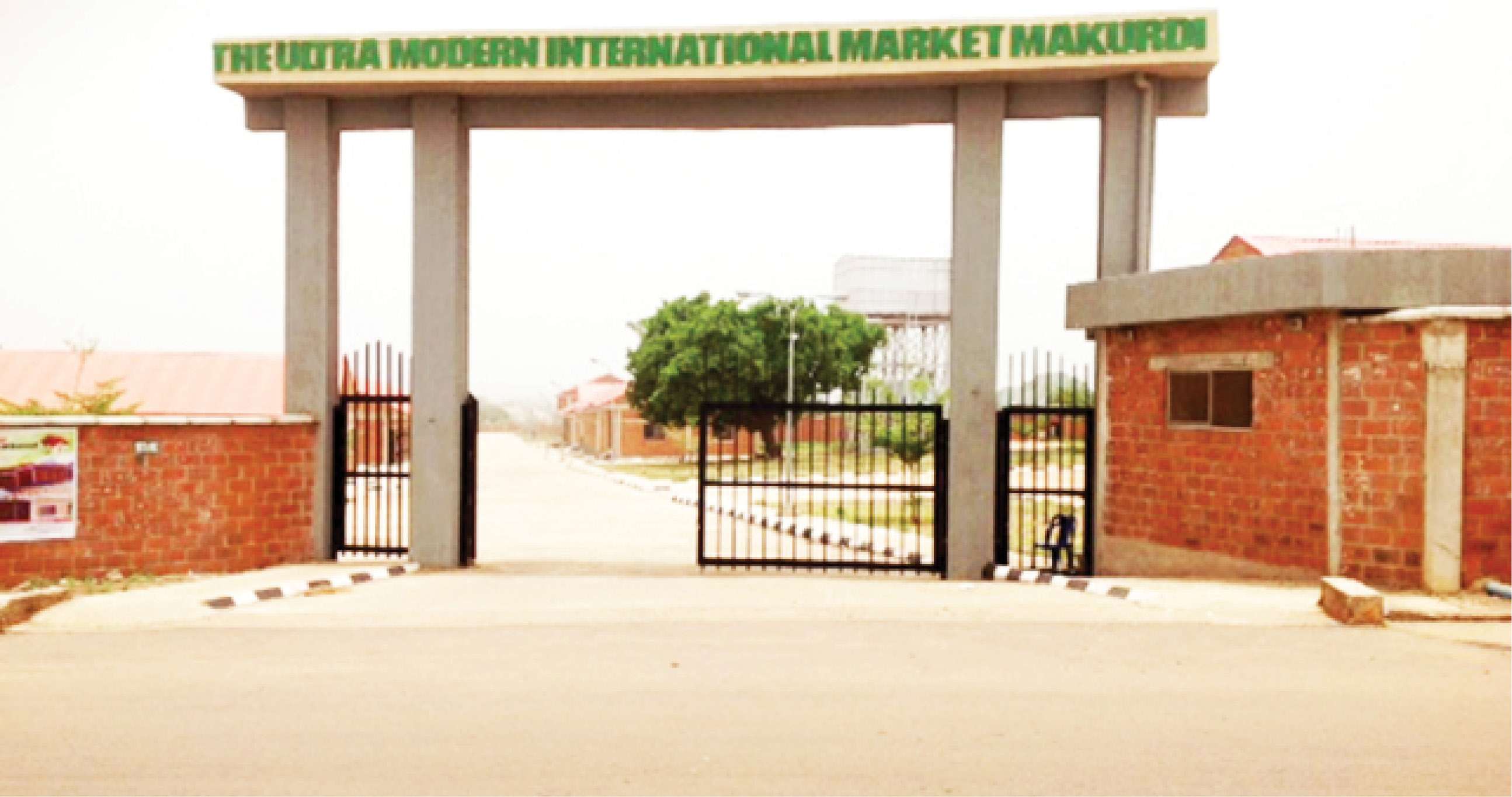The Benue State government has continued to lose huge revenue annually as commercial activities at the ultra-modern international market are yet to take off four years after the facility was commissioned.
Daily Trust can report that no trading activity takes place in the market neither is any part of the property put in use except on occasions when flood victims within Makurdi metropolis are camped there for few months by the state government in its bid to provide temporary shelter for the displaced.
The 1040 fire-proof shops in the market located at Tamen, along Abu King Shuluwa road in Makurdi, was initiated, constructed and commissioned by former Governor Gabriel Suswam’s administration.
The facilities in the market include motorised borehole, police post, restaurant and abattoir which is not yet built but has space already created for it.
Others are, toll gate, public toilets, banking hall, a clinic and fire station.
After it’s commissioning in March, 2015, the stalls were displayed for sale in units and some buyers had complained of high cost while other potential buyers at the time expressed fear of committing their finances on grounds that the Suswam administration was exiting office and the incoming administration of Governor Samuel Ortom might revoke any agreement entered into.
However, it was learnt that, some of the shops were taken up by prospective traders but many at the time were yet to be purchased due to the high cost of the property.
An Estate Valuer, Joe Nelson, a principal consultant of J. Nelson and Associates in Makurdi, told our correspondent in an interview, that the loss of revenue being suffered by the government as the market remained dormant was quite huge.
“The lost is huge. It is a white elephant project. The purpose for which it was built hasn’t materialized and as such government is losing millions of naira every year. It is a big loss to government,” he said.
Nelson added that politicians who cornered 90 percent of the allocations to themselves when the shops were initially being allotted formed part of the problem as he stressed that if the market had been in use, the revenue generated from there would run into millions of naira.
He said the market structures are strong occasioned by quality materials that would make it last very long, but the manner in which first allotters sublet theirs, then the beneficiaries also sublet them and they in turn to others had heightened the cost of the stores such that the ordinary traders cannot afford to rent them.
According to him, government must evolve ways to make the market functional despite its previous attempt to relocate Wurukum market along the roadside, to the international market failed.
“No market wants to move but government has to create an incentive which would lure them. It could be reduction in cost of the shops. Some of the shops have up to six allottees. Government must find a way to come out with incentives to attract people to the market. The market location is good. But the stores are small in size. If the market continues to remain idle, miscreants will take over,” Nelson said.
Several efforts, including visits and calls as well as text messages to officials at the state Ministry of Industry, Trade and Investment for their comment did not yield results as at the time of this report.
But our correspondent gathered from sources not authorised to speak at the ministry that the market could not even begin at the earlier stage because there were no traders and that the Wurukum market traders resisted government’s attempt to move them to the new site.
Apart from the fact that the market buildings are fire-proof and mainly lock up shops, the capacity of the market consisted of 100 shops, 100 warehouses, 600 open shops and 300 lock up shops as well as 40 farmers shop.
The ware houses at the initial stage sold for N4m with a provision for buyers to make deposit of first instalment at 45 percent of the entire cost and to pay the balance in five instalments which runs for five years.
Similarly, the lock up shops were then put up for N3.5m with first instalment pegged at 40 percent of total cost while the open shops go for as much as N3m with first instalment of 40 percent and the farmers shops were to be purchased at N300,000 of first instalment of 40 percent with five instalment expected for buyers at different categories to pay up in five years.
At inception, the government had said anybody that could afford to pay for the shop became the owner as there were no provision for rent or lease the property.

 Join Daily Trust WhatsApp Community For Quick Access To News and Happenings Around You.
Join Daily Trust WhatsApp Community For Quick Access To News and Happenings Around You.

